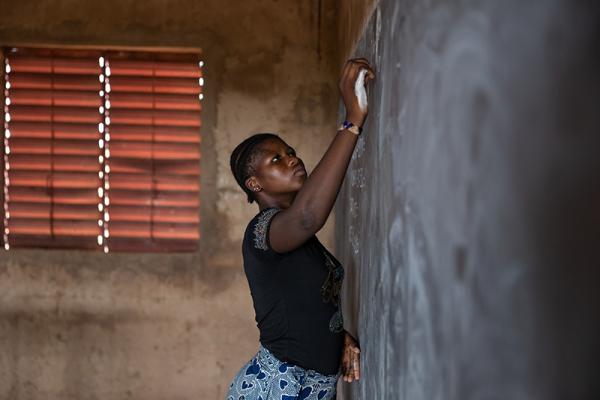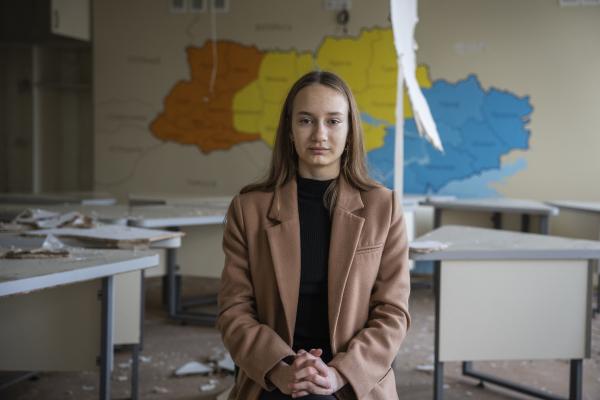The war in Syria was ignited as part of the wave of protests and demonstrations across the Middle East in 2011. It continues to this day. As a result of 12 years of conflict, millions of young people have been forced to leave their homes and seek shelter away from their families, friends and schools.
Over a decade of violence and conflict in Syria has left villages, towns and even entire cities in ruins. It is estimated that 685 educational facilities have been under attack between 2011 and June 2022.
Therefore, Syrian children have often been put in situations where their education has been in jeopardy, making it more difficult to follow their desired career paths. Some 2.45 million school-aged children in Syria are out of school, while 1.6 million are at risk of dropping out.
Hanan’s chosen career is medicine. “I dream of becoming a doctor or physician when I grow up,” she explains. “But considering the financial situation and the fact that there are no high schools nearby, it seems unlikely.”
Despite this, Hanan values the education she receives and particularly enjoys science, Arabic and English lessons.
Tenacity in emergency
When the conflict reached Hanan’s village, Sheelieh, she immediately fled and sought refuge in a nearby settlement, Jeb Hamzeh.
“Throughout the war, it got really scary for me. Especially the loud noises and bangs. I felt extremely lonely,” she says.
Moreover, Hanan’s family did not escape the scars of war. She lost her father and was abandoned by her mother, leaving her to be looked after by her 4 aunts and uncle.
Hanan and her family spent 3 years living in Jeb Hamzeh before returning to their home. “We waited there until things got better and returned afterwards,” she explains.
When she arrived back in Sheelieh, she discovered that her original school had been destroyed and she would have to travel to a neighbouring village to attend lessons.
Despite this, Hanan remains committed to gaining an education. “It takes me 30 minutes to reach the school from home,” she explains. “Sometimes the weather is nice, but other times it can be stormy. Thunder really scares me.”
“I go to school to learn because my parents did not know how to read.”
Hanan
Education as a fundamental right
Hanan’s exile in Jeb Hamzeh meant she endured 3 years without school.
However, thanks to the EU’s humanitarian support, Hanan can attend remedial catch-up classes to ensure that she doesn’t miss out on learning.
“After they reopened the school, they deducted 3 years from my education – so I started in the 3rd grade, and now I attend 7th grade,” she explains.
Thanks to EU-funded catch-up classes, Hanan could regain a part of her childhood. She can now continue with her education, pursue her ambition of being a doctor, and experience a good change of atmosphere when enjoying the social aspect of school – she has made 4 friends with whom she plays football.
On a personal level, this continued access to education, no matter what, is having a profound impact. For Hanan, it has maintained her dream of being a doctor to “help both children and the people of my village”. She remains optimistic about her future: “I hope that both my friends and I can continue our education,” she explains. “We shall not stop despite the hardship!”
“I wish to see schools in my village when I get older so that my children can continue their own education.”
Hanan



